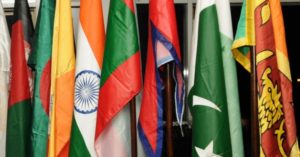
30-09-2016 (Important News Clippings)
Embrace change
BCCI must follow Lodha committee suggestions and free itself of conflicts of interest

In a status report, Lodha committee asked for BCCI’s leadership to be superseded as it has not complied with timelines to implement the reform programme. The apex court’s displeasure at BCCI’s conduct has resulted in an existential threat. BCCI president Anurag Thakur and his colleagues have only themselves to blame for the current situation. Supreme Court was even-handed in its approach to Lodha committee recommendations and rejected some impractical ones such as the attempt to micromanage television coverage of cricket. But BCCI’s continuing recalcitrance is on account of its powerful members’ desire to cling to power.
It is still not too late to manage a transition unaccompanied by chaos. A BCCI special general meeting scheduled this week can still meet some milestone set by the Lodha committee. This will convince both the apex court and fans that BCCI’s brass is willing to be a part of the transition. Barring veteran administrators who have crossed the retirement threshold, the reform programme does not preclude anyone from holding office. But there can be no compromise on creating an administrative structure which prevents conflict of interest. A modern organisation will be well placed to take cricket forward. BCCI should embrace change.
How to clean up banking decisions

However, senior executives should not have to work with a Damocles’ sword of suspicion and threat of a CBI probe hanging over their heads. Commercial decisions entail both loss and gain, and every loss-making decision is not suspect. Often, the CBI launches a preliminary probe for every absurd conjecture brought to its attention, with scant understanding of the working of finance.
Insulating banking decisions from those who do not know banking is a must. The right incentive structure is crucial to prevent corruption. Overhaul the remuneration structure at state-owned banks to link large slices to profitability in the medium and the long term. Salaries of executives who take decisions — that expose banks to risk while offering chances to make profits — should be linked to how well their decisions evolve over time. Variable pay linked to performance over the medium term should form part of their remuneration.
A larger slice must be in the form of stock options. Here, banks can take a page from state-owned Canadian pension funds that pay a decent basic salary, an attractive yearly bonus and a liberal long-term performance bonus that accounts for the largest slice of the payout. However, with liberal incentives, the case to claw back compensation is compelling, when deficiency in their tenure is detected later. Transparency in the decision-making process to sanction a loan is a must. The discussions should be recorded to hold executives to account. Functional autonomy must go hand in hand with accountability
अब अगला कदम बलूचिस्तान की आज़ादी हो
पाकिस्तान व मध्य-पूर्व
मामलों के टिप्पणीकार
कॉलेजियम पर न्यायमूर्ति का सवाल
उच्च न्यायपालिका में न्यायाधीशों की नियुक्ति को लेकर जो टकराव की स्थिति उच्चतम न्यायालय तथा केंद्र सरकार के बीच उत्पन्न हो गई है, वैसा टकराव हाल के दशकों में देखने को नहीं मिला है। प्रधान न्यायाधीश टी एस ठाकुर न्यायाधीशों की नियुक्ति नहीं किए जाने को लेकर सरकार पर प्रहार करने का कोई मौका हाथ से जाने नहीं देते। दूसरी ओर केंद्र सरकार भी उच्च न्यायपालिका में न्यायाधीशों की नियुक्ति का अधिकार पूरी तरह से न्यायपालिका के हाथों छोड़ना नहीं चाहती। फोर्थ जजेज मामले (सुप्रीम कोर्ट एडवोकेट्स-ऑन-रेकार्ड बनाम संघ) में गत वर्ष अक्टूबर में सर्वोच्च अदालत ने संविधान के 99वें संशोधन को निरस्त कर दिया, जिसके द्वारा राष्ट्रीय न्यायिक नियुक्ति आयोग का गठन किया गया था। परंतु अदालत ने इतना स्वीकार किया कॉलेजियम की कार्यपद्धति में कई कमियां हैं और सरकार से प्रक्रिया की विवरणिका बनाने को कहा। बात इसी पर अटक गई, क्योंकि सरकार राष्ट्रीय सुरक्षा के आधार पर किसी भी नियुक्ति को वीटो करने का अधिकार अपने पास रखना चाहती है, जो शीर्ष न्यायालय को मंजूर नहीं है।उच्चतम न्यायालय ने व्याख्या के जरिये कॉलेजियम व्यवस्था थोपी है, जिसका संविधान में कोई जिक्र नहीं है। फर्स्ट जजेज मामले (एसपी गुप्ता बनाम संघ) में 1981 में अदालत ने कहा कि चूंकि कार्यपालिका जनता के प्रति जवाबदेह है और न्यायपालिका की ऐसी कोई जवाबदेही नहीं है, इसलिए नियुक्ति का अधिकार कार्यपालिका के पास होना चाहिए। परंतु 1993 में सेकंड जजेज मामले में इस निर्णय को पलटते हुए उच्चतम न्यायालय की एक संविधान पीठ ने कहा कि संविधान का उद्देश्य योग्य एवं ईमानदार न्यायाधीशों की नियुक्ति करना है। अदालत के अनुसार, न्यायाधीश ही किसी वकील की योग्यता एवं निष्ठा की परख कर सकता है। विधायिका के पास वकीलों की योग्यता परखने का कोई जरिया नहीं है और अनुच्छेद 121 एवं 211 के तहत न्यायाधीशों के चरित्र पर संसद या विधानमंडल में कोई बहस नहीं हो सकती है। इसी तर्क पर न्यायालय ने न्यायाधीशों की नियुक्ति का अधिकार कार्यपालिका से छीनकर अपने हाथों में ले लिया।
कॉलेजियम की कार्यप्रणाली पर अक्सर सवाल उठते रहे हैं। परंतु इस बार आवाज अंदर से आई है। सुप्रीम कोर्ट के न्यायाधीश एवं कॉलेजियम के सदस्य न्यायमूर्ति जे चेलामेश्वर ने आरोप लगाया है कि कॉलेजियम के कामकाज में पारदर्शिता नहीं है और वह भविष्य में कॉलेजियम की बैठकों में भाग नहीं लेंगे। सवाल यह नहीं है कि नियुक्ति कौन करता है या उसकी प्रक्रिया क्या है। सवाल यह है कि क्या नियुक्ति के बाद उसे पूर्ण सुरक्षा मिलती है। यदि हां, तो नियुक्ति का अधिकार किसके पास है, यह अहम नहीं है। इसलिए न्यायमूर्ति चेलामेश्वर ने फोर्थ जजेज मामले में संविधान पीठ के अन्य चार न्यायाधीशों के साथ असहमति जताते हुए राष्ट्रीय न्यायिक नियुक्ति आयोग के गठन को सही माना। उन्होंने मेरी पुस्तक जस्टिस, जूडोक्रेसी ऐंड डेमोक्रेसी इन इंडिया से एक अंश उद्धृत किया, जिसमें मैंने लिखा है कि राजनीति में सक्रिय कई अधिवक्ताओं को जज बनया गया। केएस हेगड़े तथा टकेचंद तो राज्यसभा सांसद थे, जब उन्हें उच्च न्यायालय का न्यायाधीश बनाया गया। परंतु जस्टिस हेगड़े इतने निष्पक्ष रहे कि उन्हें उन्हीं की कांग्रेस सरकार ने भारत का प्रधान न्यायाधीश नहीं बनने दिया। न्यायमूर्ति वी आर कृष्ण अय्यर पहले केरल सरकार में मंत्री थे, और उन्हें सुप्रीम कोर्ट का जज बनाए जाने का काफी विरोध था, पर वह एक आदर्श जज साबित हुए।
सुधांशु रंजन
वैश्वीकरण के शोर में राष्ट्रीय पहचान का जोर
हम एक नए दौर से गुजर रहे हैं जहां कारोबारी नेता यह समझने लगे हैं कि वैश्वीकरण की प्रक्रिया में राष्ट्रीय पहचानों और संस्कृतियों का भी पूरा ध्यान रखना होगा। विस्तार से जानकारी दे रहे हैं क्लॉड समद्जा
इन दिनों यह खूब सुनने में आ रहा है कि वैश्वीकरण की प्रक्रिया अपने अंतिम चरण से गुजर रही है। इस विचार को आगे बढ़ाने वाले इसके प्रमाण दुनिया के अलग-अलग हिस्सों से पेश करते हैं: यूरोप और अमेरिका में लोकप्रिय दलों का उदय, यूनाइटेड किंगडम का बे्रक्सिट के पक्ष में मतदान, वैश्विक कारोबार के आकार में मंदी अथवा प्रशांत पार साझेदारी समझौते (टीपीपी) अथवा अटलांटिक पार कारोबार और निवेश साझेदारी (टीटीआईपी) को आगे बढ़ाने में दिक्कत। चीन में पिछले दिनों आयोजित ग्लोबल एंटरप्राइज फोरम में कुछ चीनी वक्ताओं की इस कुढऩ के बारे में सुनना दिलचस्प था कि वैश्वीकरण के जोखिमों में एक ठहराव आ गया है और कैसे यह बात उनके देश पर नकारात्मक असर डालेगी।
SAARC minus one
India’s search for alternatives to this regional forum must quicken.
Prime Minister Narendra Modi’s decision to skip the South Asian summit in Islamabad next month is, in essence, about the deteriorating relationship with Pakistan. It also underlines the growing irrelevance of the South Asian Association of Regional Cooperation for India’s regionalism. Irrespective of India’s future relations with Pakistan, the Modi government’s search for alternatives to SAARC will now acquire a new momentum.
For too long, India had conflated its regionalism with SAARC that was established three decades ago at the initiative of Bangladesh. While Delhi and Islamabad were both wary of the move in the mid-1980s, it was the inward economic orientation of the Subcontinent that limited possibilities for regional cooperation. As the Subcontinent launched economic reforms in the 1990s, regional integration appeared a natural consequence waiting to happen. As the South Asian states opened up to the world, it seemed sensible to connect with each other. But that was not how it turned out.India, on its part, inched towards accepting regionalism as an economic and political necessity. The SAARC, in turn, began to emphasise trade liberalisation, regional connectivity and trans-border economic projects. South Asia sought to evolve, much in the manner that the Association of South East Asian Nations had stitched itself together two decades earlier.
As SAARC developed new proposals and agreements in favour of preferential trade, free trade, road and rail connectivity and cross-border energy projects, it became clear that Pakistan was the camel that slowed down the pace of the South Asian caravan. More accurately, it was the Pakistan Army headquartered in Rawalpindi that exercised the veto. It was not that the Pakistan army was against the idea of regional cooperation. At a moment when SAARC was being formed in the mid-1980s, Pakistan set up the Economic Cooperation Organisation (ECO) with Iran and Turkey. After the collapse of the Soviet Union, the Central Asian states joined the ECO. More recently, Rawalpindi has become the champion and guardian of the trans-border China-Pakistan economic corridor.
Rawalpindi’s problem was with the idea of economic integration with India. Neither the initiatives of SAARC, nor the Indian appeals, were capable of changing this. China and the United States, two of Pakistan’s best friends, often tried nudging Rawalpindi to take a more positive view of economic cooperation with India. Civilian leaders at the national as well as the provincial level in Pakistan have long sought greater cooperation across the borders. But resistance of Pakistan’s ‘deep state’ was insurmountable.Two most recent examples have been the talks on trade liberalisation and cross-border trade in energy during the last years of the UPA government. Islamabad pulled back just when the agreements were ready for signature. Pakistan also walked away from agreements on road connectivity after they were presented to the heads of government at the last SAARC summit in Kathmandu in November 2014.
In the past, Delhi simply shrugged its shoulders. Although it was clear that the SAARC caravan was going nowhere with Pakistan, it seemed there was little that India could do. PM Modi, however, took a different track. At the Kathmandu summit, he called for a two-speed SAARC. Rather than let one country take the entire region hostage, Modi suggested, those who are ready for integration should move ahead. As a result, Bangladesh, Bhutan, India and Nepal got together soon after the Kathmandu summit to implement the motor vehicle agreement.
The BBIN framework was seen by many as heralding the era of ‘SAARC Minus One’ and hostile to Pakistan. The BBIN, however, was very much part of the SAARC framework. The SAARC charter allows two or more countries of the forum to embark on what is called ‘sub-regional cooperation’. It was a policy instrument that was long available to policymakers in Delhi but remained unutilised. Delhi could also complement its sub-regional initiative with trans-regional outreach. If the Look East Policy aimed to integrate India with Asia, Delhi also helped create a regional forum called the BIMSTEC (Bay of Bengal Initiative for Multi-Sectoral Technical and Economic Cooperation). Although it dates back to 1997, the forum that brings five South Asian countries (Bangladesh, Bhutan, India, Nepal and Sri Lanka) together with two south east Asian countries (Burma and Thailand) has remained dormant.
The Modi government is now eager to re-energise the BIMSTEC forum. As part of that commitment, it has invited the BIMSTEC leaders to join the BRICS leaders at the Goa summit next week. Modi’s meetings with the BIMSTEC leaders present a major opportunity to demonstrate that the meltdown of SAARC does not mean India is giving up the ambitions of its neighbourhood first strategy. One thing that the PM, who never misses an opportunity to coin a new acronym, might want to do is to give the BIMSTEC a more attractive name. The Bay of Bengal Community? BOBCOM, anyone?The turn to the east, however, does not resolve India’s Pakistan problem in promoting economic cooperation with Afghanistan. Rawalpindi is dead set against letting Indian goods move overland to Afghanistan, despite fervent appeals from Kabul and an occasional entreaty from Washington. With no physical access to Afghanistan, Delhi needs to find creative ways to deepen bilateral economic engagement with Kabul bilaterally and through trilateral cooperation with other partners like Tehran.
Pakistan is free to choose its partners. It has consciously embraced China as the strategic economic partner; Rawalpindi believes that restoring historic economic connectivity with India is a threat to Pakistan. India can’t compel Pakistan to join the project of South Asian integration. Instead of bemoaning that fact, Delhi must devote itself to bilateral, sub-regional and trans-regional cooperation with our neighbours, all of whom except Pakistan want India to do more. SAARC may be headed to the mortuary. But India can easily catch a new wind in its regional sails.
C. Raja Mohan
Date: 29-09-16
Caste in a new mould
Law and justice may still prove elusive, but powerful new voices are transforming Dalit politics.
When four members of the Dalit Bhotmange family in Khairlanji were murdered by a group of people belonging to an OBC caste from the same village, the state and its institutions refused to accept that it was a caste crime. A fast-track court sentenced eight of the 50 accused to death for the murders and the high court reduced it to life — while rejecting the charges made under the SC/ST Prevention of Atrocities Act. State institutions and the law continue to fail Dalits. But, 10 years later, powerful new voices are emerging from within the community, forcefully articulating a politics of rights and justice. It reflects an ongoing churn in society, where new social, economic and political forces are shaping a modernity that challenges the old caste order even as they are set in it.
The Khairlanji violence also had a lot to do with Dalit assertion. The Ambedkarite politics of the 20th century had radicalised and empowered Dalits, threatening the very foundations of the caste-centric feudal hierarchy of rural Maharashtra. Political mobilisations, then and now, in the state reflect the deep unease among the caste elites with Dalit empowerment, reflected in community members gaining education, employment outside the “traditional” caste occupations, and acquiring material assets. Maharashtra’s political narrative is not exceptional. At the heart of the anti-Dalit violence reported from across India, be it in Tamil Nadu or Gujarat, seem to be non-Dalit anxieties about losing social and economic dominance as Dalits increasingly access modern education and assert their rights as citizens. The life and death of Rohith Vemula mirrored the Dalit upsurge and the extreme reactions to it. Vemula’s layered articulation of identity and emancipatory politics unnerved the establishment, which sought to first isolate, and then, penalise him. He chose death to assert his self, and his suicide roiled campuses across the country. Similarly, the attack by “gau rakshaks” on Dalits in Una has triggered a political response that has resonated across the country. Vemula, even after his death, and Jignesh Mewani in Gujarat, represent a new language of assertion of the marginalised and disprivileged that transcends the exclusive character of Dalit identity politics.The emergence of the Bahujan Samaj Party in the 1980s as a political movement and an electoral force could be seen as the big breakthrough in Dalit politics since Ambedkar. The post-Vemula mobilisations indicate a new exciting phase. The political establishment has no option but to engage with these large transformations.
Date: 29-09-16
The Sunday Syndrome
Shouldn’t the weekly off day be a matter of choice, instead of being dictated by law?

The manager of the Empress Mill testified in 1884 before the Factory Commission: “…Mills should close every Sunday and give the hands a rest, but when a native holiday occurs, I would work on the Sunday.” The manager of the Sewlal Motilal Spinning Mill testified: “I would not give holidays on Sundays always… if a native holiday came during the week I would work the following Sunday. The operatives would object to have their holidays fixed for any special day… they would prefer their own holidays to Sundays.”
There are shops and establishments outside the purview of factory-related labour legislation. These have to be closed on one day of the week, but that doesn’t have to be Sunday. In Delhi, for instance, “different days may be specified for different classes of shops or commercial establishments or for different areas”. I don’t see why this flexibility shouldn’t be extended across the board, getting away from the Sunday syndrome. There is a difference between an establishment remaining closed on a fixed day of the week and each individual worker getting a day off once a week. It is perfectly possible for an establishment to remain open all seven days, as long as each worker gets a day off. This is a matter of choice. Why must law mandate this? Unfortunately, that is the equation in the shops and establishments legislation. This is also the de facto provision in the Weekly Holidays Act of 1942. We should get away from factory mindsets.
Bibek Debroy
सार्क और उसकी भावना
भारत ने मंगलवार को जिस तरह से आतंकवाद के मुद्दे पर पाकिस्तान को अलग-थलग करने की रणनीति दिखाई, तभी लगने लगा था कि नतीजे ऐसे ही आएंगे। भारत ने न सिर्फ पाकिस्तान की जमीन पर होने वाले सार्क देशों के सम्मेलन से अपने को अलग रखने का फैसला लिया, वरन उसी वक्त उरी हमले में उसकी संलिप्तता के पुख्ता सबूत भी उसे सौंपे। पाकिस्तान की नीति और नीयत पर यह दोहरी चोट थी। भारत के इस फैसले के तत्काल बाद बांग्लादेश, भूटान और अफगानिस्तान ने भी सार्क सम्मेलन से अपने को अलग करके आतंकवाद के खिलाफ लड़ाई में न सिर्फ सहभागिता दिखाई, बल्कि पाकिस्तान को ‘टेरर स्टेट’ घोषित किए जाने की तमाम देशों की मंशा के साथ भी मजबूती से खडे़ दिखाई दिए।
सार्क शिखर सम्मेलन का रद्द होना भारत के उस कड़े फैसले के साथ ही तय हो गया था, जब यह कहा गया कि न तो प्रधानमंत्री नरेंद्र मोदी वहां जाएंगे, न ही भारत का कोई अधिकारी। सार्क की नियमावली कहती है कि यदि आठ सदस्यीय सार्क से एक भी सदस्य गैरहाजिर होता है, तो यह रद्द हो जाएगा। उरी के बाद भारत की यह पहली बड़ी कूटनीतिक विजय है, जब उसने पाकिस्तान को अलग-थलग करने की कोशिश सफल रही। तीन पड़ोसियों ने जिस तरह इसे मुखर समर्थन दिया, वह आश्वस्त करता है कि पड़ोस की धरती से पनप रही आतंकवाद की बेल को काटने की भविष्य की यह लड़ाई उतनी भी कठिन नहीं है। भारत की इस कूटनीतिक चाल पर पाकिस्तान की प्रतिक्रिया खिसियानी बिल्ली जैसी है। उसने भारत के इस फैसले को दुर्भाग्यपूर्ण भर कहा। इस लड़ाई में भारत के साथ बांग्लादेश, भूटान और अफगानिस्तान के खड़े होने को सिर्फ शुरुआत माना जाना चाहिए और पाकिस्तान के लिए एक चेतावनी भी। सार्क सम्मेलन पर खतरे के बादल तो सिर्फ एक प्रतीक है, दरअसल यह पाकिस्तान की मुश्किलों की शुरुआत है।
प्रधानमंत्री नरेंद्र मोदी ने जिस तरह सिंधु जल समझौते पर बड़ी बैठक की, वह भी इस दिशा में एक बड़ा कूटनीतिक कदम माना जा रहा है। माना जा रहा है कि भारत पाकिस्तान को ‘मोस्ट फेवर्ड नेशन’ यानी तरजीही देश का दर्जा खत्म करने की पहल के साथ वह सब कर देना चाहता है, जो पाकिस्तान को कमजोर करने में सहायक हो। दरअसल, भारत पाकिस्तान के खिलाफ हर वह असैनिक उपाय आजमा रहा है, जिसके संदेश कड़े हों। प्रधानमंत्री के वक्तव्य ‘खून और पानी दोनों एक साथ नहीं बह सकते’ में भी यही स्पष्ट संकेत और संदेश था। ये दो बातें पाकिस्तान को विचलित करने, उसकी चिंता बढ़ाने वाली हैं। भारत हमेशा सौहार्द का पक्षधर रहा है, पाकिस्तान की तमाम कारगुजारियों के बावजूद पिछले महीने गृह मंत्री राजनाथ सिंह का वहां जाना इसी रूप में देखा जाना चाहिए। सार्क सम्मेलन में शामिल न होने का ताजा फैसला मजबूरी में लिया गया फैसला है। इसे पाकिस्तान की हरकतों से उपजे दबाव की तरह से देखा जाना चाहिए। इसके पहले तक सार्क की हर तैयारी में हमारी अब तक की भागीदारी बताती है कि भारत की मंशा हमेशा की तरह इसे सार्थक करने की ही थी। ढाई साल पहले प्रधानमंत्री पद की शपथ लेते समय ही नरेंद्र मोदी ने सार्क देशों के लिए एक विशेष उपग्रह लांच करने की घोषणा की थी, जो बताता है कि उस समय उनके इरादे क्या थे। और अब जो फैसले हो रहे हैं, वे बताते हैं कि दबाव किस तरह के हैं। इसके साथ ही हमारे कई पड़ोसियों ने भी अपने तईं कदम उठाकर पाकिस्तान को आगाह कर दिया है। अब इसके आगे पाकिस्तान को सोचना है।
खटाई में सार्क
सार्क का गठन दक्षिण एशिया में व्यापारिक, वाणिज्यिक और सांस्कृतिक सहयोग को बढ़ावा देने और परस्पर शांति बनाए रखने के मकसद से किया गया था।

सार्क घोषणा-पत्र के मुताबिक किसी भी देश के अनुपस्थित रहने पर इसका शिखर सम्मेलन आयोजित नहीं किया जा सकता। पाकिस्तान ने भारत के इस फैसले को दुर्भाग्यपूर्ण करार दिया है। लंबे समय से पाकिस्तान पर आतंकवादी संगठनों के खिलाफ कार्रवाई करने का दबाव डाला जाता रहा है, मगर वह इसे गंभीरता से नहीं लेता। सार्क घोषणा-पत्र में इसके सभी सदस्य देशों ने इस वचनबद्धता पर हस्ताक्षर किए हैं कि वे किसी भी रूप में आतंकवादी गतिविधियों के लिए अपनी जमीन का इस्तेमाल नहीं होने देंगे। मगर पाकिस्तान ने उसे कब का भुला दिया है। इसके अनेक प्रमाण मौजूद हैं कि खासकर भारत के खिलाफ वह आतंकवाद को हथियार के रूप में इस्तेमाल करता आ रहा है। अनेक मौकों पर उसे आतंकवादी हमलों से जुड़े दस्तावेज सौंपे गए, लेकिन उन पर गंभीरता दिखाने के बजाय उन्हें सिरे से खारिज करता रहा है। फिर उसके यहां पनाह पाए आतंकी संगठनों की हरकतों का शिकार केवल भारत नहीं है, बांग्लादेश और अफगानिस्तान में भी पाक समर्थित आतंकवादी संगठनों की तरफ से किए गए हमलों के पुख्ता प्रमाण हैं।
सार्क का गठन दक्षिण एशिया में व्यापारिक, वाणिज्यिक और सांस्कृतिक सहयोग को बढ़ावा देने और परस्पर शांति बनाए रखने के मकसद से किया गया था। मगर पाकिस्तान शुरू से इसके घोषणा-पत्र में कही बातों का उल्लंघन करता रहा है। भारत के ताजा फैसले का उस पर शायद ही कोई असर पड़े, पर इससे एक बार फिर दुनिया के सामने उसका पक्ष कमजोर हुआ है। भारत ने व्यापार के लिहाज से उसे विशेष देश का दर्जा दे रखा है, अब वह उसे वापस लेने पर भी विचार कर रहा है। पाकिस्तान की आर्थिक स्थिति छिपी नहीं है। बेरोजगारी, अशिक्षा और गरीबी के चलते वहां विकास के रास्ते अवरुद्ध हैं। ऐसे में अगर सार्क देश उससे व्यापारिक संबंध तोड़ लेते हैं तो उसकी मुश्किलें और बढ़ेंगी।
संयुक्त राष्ट्र महासंघ के सम्मेलन में पाकिस्तानी प्रधानमंत्री नवाज शरीफ ने जिस तरह आतंकी बुरहान वानी का पक्ष लिया उससे दुनिया के अनेक देशों से उन्हें निंदा झेलनी पड़ी। फिर अमेरिका लगातार उस पर दबाव बना रहा है कि वह अपने यहां पनाह पाए आतंकी संगठनों पर नकेल कसे। मगर पाकिस्तान अपनी सेना, आतंकी संगठनों और कट््टरपंथी ताकतों के चंगुल में इस कदर फंस चुका है कि आतंक का दामन छोड़ना उसके लिए मुश्किल होता गया है। अब स्थिति यह है कि वह धर्म और कश्मीर के नाम पर पाकिस्तानी अवाम को बरगलाए रख कर मूल समस्याओं से उसका ध्यान हटाए रखने का प्रयास करता है। फिलहाल विदेशी इमदाद से वह अपनी जरूरतें पूरी करने की कोशिश करता आ रहा है, पर जब उसके व्यापार और रोजगार के स्रोत सूखते जाएंगे, उसे अपने यहां के लोगों का आक्रोश झेलना कठिन होगा।





